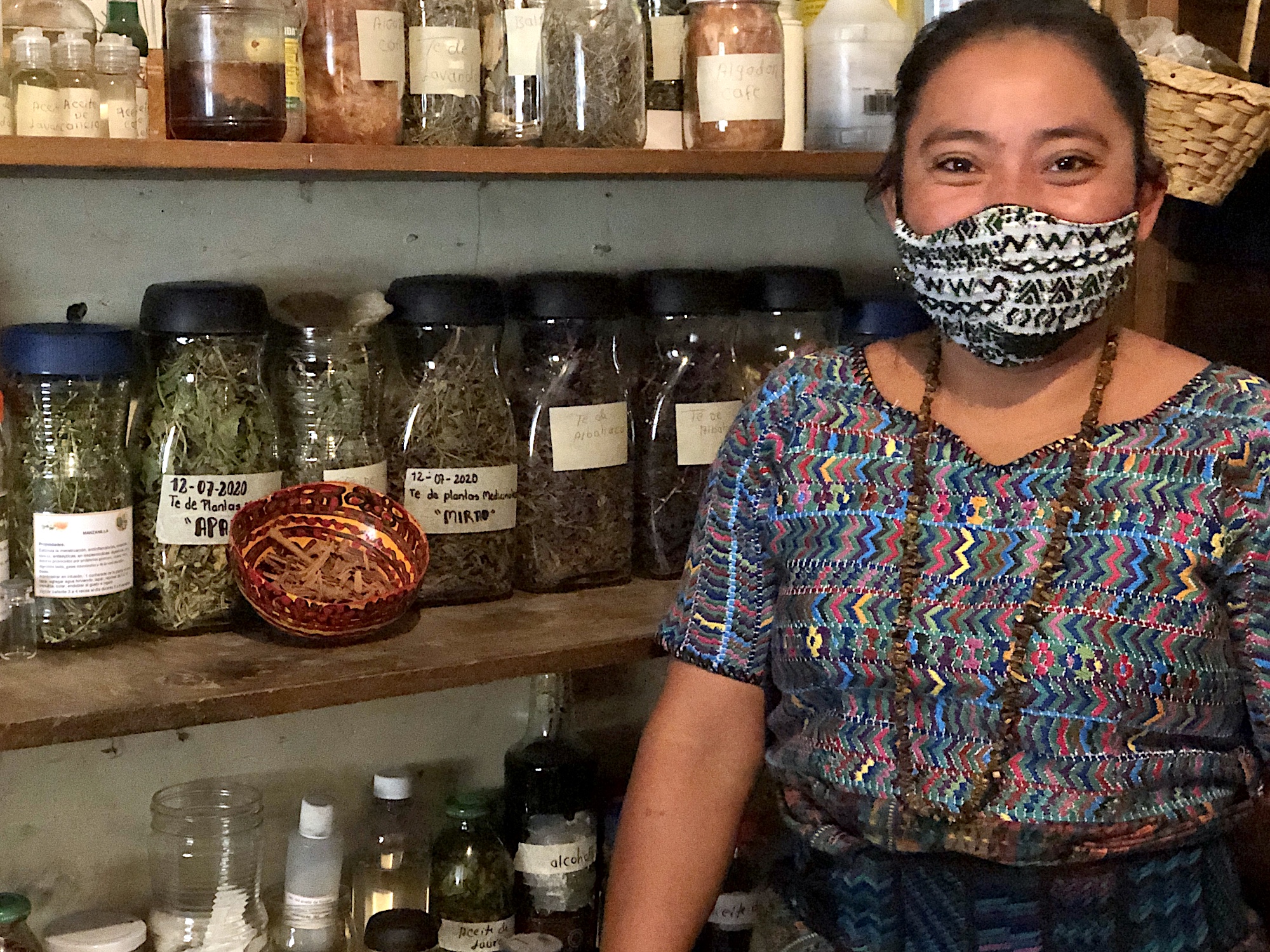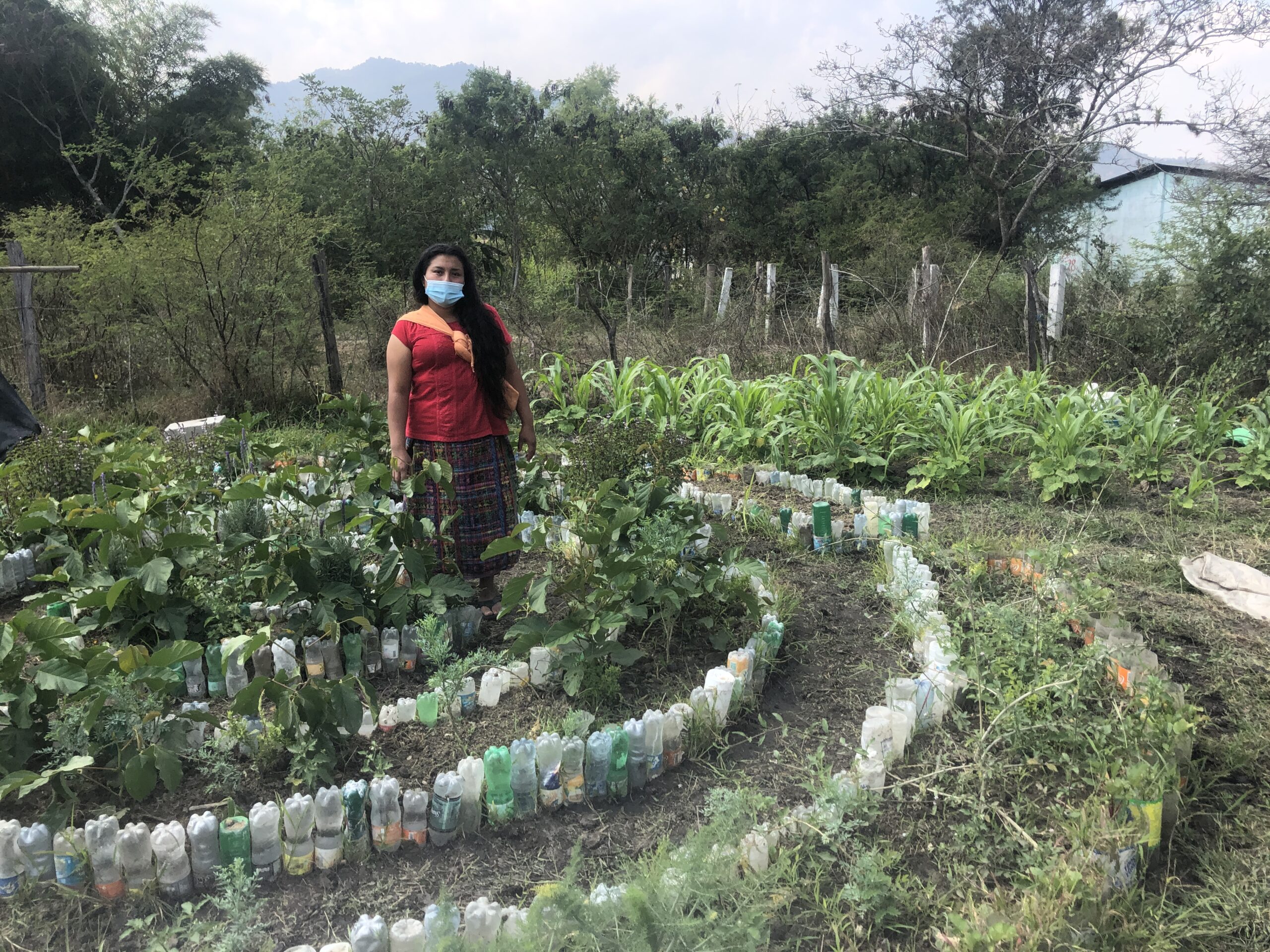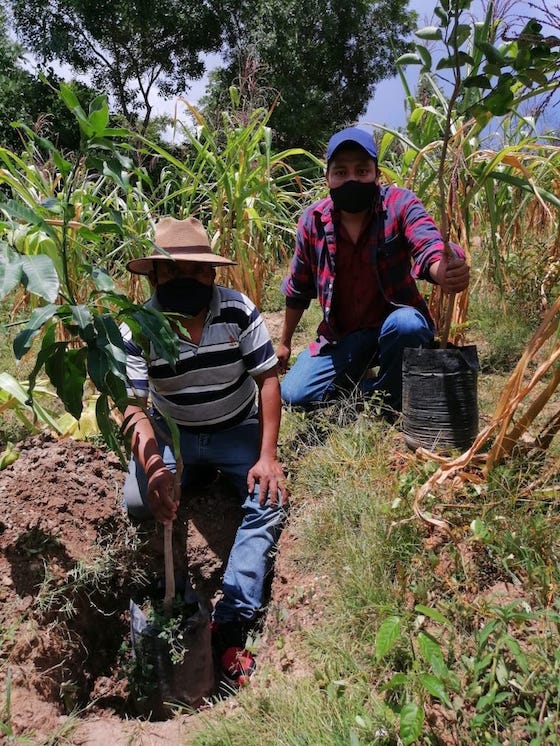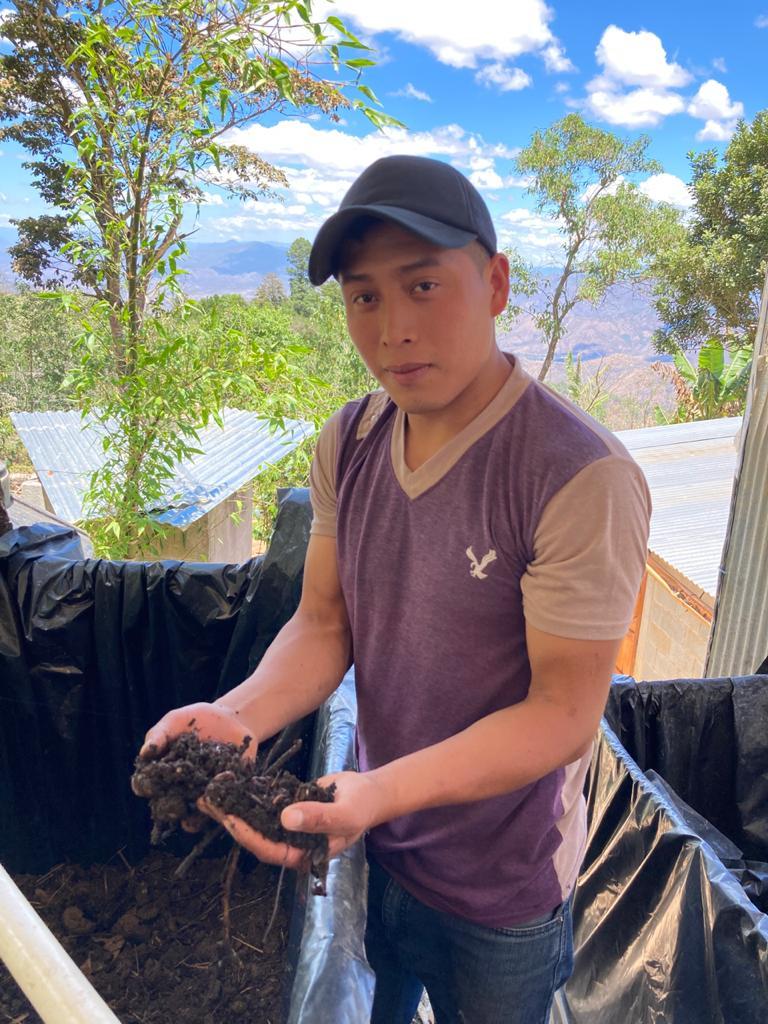Creative Solutions to the Pandemic
Written by Josselin Chun
During last year’s lockdown, when COVID began affecting people’s normal routine, in Guatemala, we started a program called Creative Solutions to the Pandemic. Through this program, we’ve supported individuals with initiatives that identify challenges and propose solutions in their communities.
Aurelia Xitumul, from Chiac, improved her home apothecary to meet some of the health needs of her community. She expanded her home garden, harvested plants, and dried them to make salves, infused oils, and teas.

“Having these natural medicines available in the community has been helpful because traveling to the nearest city to get medicine can be expensive.” – Aurelia Xitumul
Aurelia uses the plants from her garden to teach others how to make essential oils for massage and teas, and in the process, she herself is learning more about natural medicine. Now, people in Aurelia’s community come to her for medicinal teas and therapeutic massages with infused oils.
Olga Burrero Guanche, a traditional healer from the community of Guachipilin, used to go to the market to buy plants, but sometimes she couldn’t find what she needed for a specific treatment. She saw the need to implement a medicinal home garden.
In the rainy season, soils erode easily so Olga collected plastic bottles that she and her family found in clandestine dumps, to create a border that helps retain the soil in her raised beds. Implementing this technique in her garden is important because, in her community, there are no places for recycling and there’s a lot of trash that can’t be cleaned up. After her design was complete, she planted rosemary, yarrow, and basil along with other plants that can be used in her temescal (sweat lodge).

Having her own garden has made the process of working with her patients much easier. Now she can share plants with people who can’t afford to buy them in the market.

Reyna Raxcaco, also implemented a home medicinal garden where she planted basil, yarrow, aloe, mirta, rue, fennel, among others. When her neighbors saw her garden they too wanted medicinal plants. In order to provide more access, she diversified her garden and began promoting the use of natural medicine, by sharing plants with members of her community. She taught them what they could be used for and how to plant them. For instance, she planted chamomile with an elder in her community and explained that the leaves could be used in tea when someone has a respiratory infection.
Due to the severe lack of water, most people in her community can only have plants in pots and not on the ground. For Reyna, the best way to make sure that everyone has at least a few medicinal plants, was to share her potted plants with other people.
Proyectos Creativos, has helped people explore their interests while working to better their community. – Josselin Chun, Program Coordinator
Cristobal Osorio, worked with a family in the community of Quiate planting lemon, orange, mango, and mandarin fruit trees. Cristobal shared his knowledge of organic practices helping the family learn how to protect the trees from insects. Their hope is that they can one day have an organic fruit tree farm where they can show other families how to propagate fruit trees. Due to water scarcity, not many people plant fruit trees, so having these plants where there is water allows families and communities to have access to healthy fruits.



Farmers Francisco and Hilda Sic from Chichupac, worked together installing a composting worm bin at Hilda’s house. Francisco helped teach Hilda how to care for her worms and the many benefits and outputs they provide. She added the worm compost to the roots of her plants when they were young and it helped the plants grow healthy and strong because this soil contains a lot of nutrients. Francisco also has a garden with composting worms at his house and many people in his community have asked him if he can help install worm bins with them.
Don Reyes from the community of Xesiguan is working on diversifying his fruit trees at his house to include orange, lemon, mango, and other fruit trees. This is important to him because, if he is able to adapt more trees into his garden, his family and other members of the community will have access to more healthy foods grown locally. Planting fruit trees also helps reforest communities where deforestation is contributing to warmer temperatures and negatively impacting local watersheds. Reyes is inspired and committed to working with organic practices on his land so that his creative project becomes a positive example for his community.
During the lockdown, Proyectos Creativos gave emerging changemakers the opportunity to turn their ideas into projects that meet the needs of their community and create resiliency. Medicinal plants and traditional medicine is extremely valuable during a pandemic since people are unable to travel to safe medical facilities or to the market. The composting and fruit tree projects are an investment in food security for the future, especially for people whose livelihoods were impacted by the pandemic.
